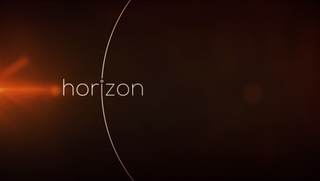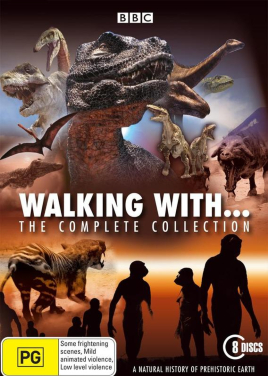Related Research Articles

70 mm film is a wide high-resolution film gauge for motion picture photography, with a negative area nearly 3.5 times as large as the standard 35 mm motion picture film format. As used in cameras, the film is 65 mm (2.6 in) wide. For projection, the original 65 mm film is printed on 70 mm (2.8 in) film. The additional 5 mm contains the four magnetic stripes, holding six tracks of stereophonic sound. Although later 70 mm prints use digital sound encoding, the vast majority of existing and surviving 70 mm prints pre-date this technology.

To Fly! is a 1976 American short docudrama film directed by Greg MacGillivray and Jim Freeman of MacGillivray Freeman Films, who wrote the story with Francis Thompson, Robert M. Young, and Arthur Zegart. It premiered at the giant-screen IMAX theater of the National Air and Space Museum, which opened to celebrate the United States Bicentennial. The film chronicles the history of aviation in the US, with a narration written by Thomas McGrath. Thematically, it explores the search for national identity through the country's westward expansion as well as humanity's relationship with aviation.

IMAX is a proprietary system of high-resolution cameras, film formats, film projectors, and theaters known for having very large screens with a tall aspect ratio and steep stadium seating, with the 1.43:1 ratio format being available only in few selected locations.
The Melbourne Museum is a natural and cultural history museum located in the Carlton Gardens in Melbourne, Australia.
The Robots of Death is the fifth serial of the 14th season of the British science fiction television series Doctor Who, which was first broadcast in four weekly parts on BBC1 from 29 January to 19 February 1977.

The Blue Planet is a British nature documentary series created and co-produced by the BBC and Discovery Channel. It premiered on 12 September 2001 in the United Kingdom. It is narrated by David Attenborough.

Horizon is an ongoing and long-running British documentary television series on BBC Two that covers science and philosophy.

Walking with Dinosaurs is a 1999 six-part nature documentary television miniseries created by Tim Haines and produced by the BBC Science Unit, the Discovery Channel and BBC Worldwide, in association with TV Asahi, ProSieben and France 3. Envisioned as the first "Natural History of Dinosaurs", Walking with Dinosaurs depicts dinosaurs and other Mesozoic animals as living animals in the style of a traditional nature documentary. The series first aired on the BBC in the United Kingdom in 1999 with narration by Kenneth Branagh. The series was subsequently aired in North America on the Discovery Channel in 2000, with Avery Brooks replacing Branagh.

Wall to Wall Media, part of Warner Bros. Television Studios UK, is an independent television production company that produces event specials and drama, factual entertainment, science and history programmes for broadcast by networks in both the United Kingdom and United States. Its productions include Who Do You Think You Are?, New Tricks, Child Genius, and Long Lost Family.
Volcanoes of the Deep Sea is a 2003 documentary film in the IMAX format about undersea volcanoes directed by Stephen Low.

Planet Earth is a 2006 British television series produced by the BBC Natural History Unit. Five years in the making, it was the most expensive nature documentary series ever commissioned by the BBC and also the first to be filmed in high definition. The series received multiple awards, including four Emmy Awards, a Peabody Award, and an award from the Royal Television Society.
Stephen Low is a Canadian film director and screenwriter who works extensively in the IMAX and IMAX 3D film formats. Based in Montreal, Quebec, over his 30-plus year career Low has directed numerous award-winning film documentaries including Challenger: An Industrial Romance (1980), Beavers (1988), Titanica (1991), Super Speedway (1997), Volcanoes of the Deep Sea (2003), Fighter Pilot: Operation Red Flag (2004), Ultimate Wave Tahiti 3D (2010), Legends of Flight 3D (2010), Rescue 3D (2011), Rocky Mountain Express (2011) and Aircraft Carrier (2017).
Christopher Riley is a British writer, broadcaster and film maker specialising in the history of science. He has a PhD from Imperial College, University of London where he pioneered the use of digital elevation models in the study of mountain range geomorphology and evolution. He makes frequent appearances on British television and radio, broadcasting mainly on space flight, astronomy and planetary science and was visiting professor of science and media at the University of Lincoln between 2011 and 2021.

Walking with... is a palaeontology media franchise produced and broadcast by the BBC Studios Science Unit. The franchise began with the series Walking with Dinosaurs (1999), created by Tim Haines. By far the most watched science programme in British television during the 20th century, Walking with Dinosaurs spawned companion material and four sequel series: Walking with Beasts (2001), Walking with Cavemen (2003), Sea Monsters (2003) and Walking with Monsters (2005). Each series uses a combination of computer-generated imagery and animatronics, incorporated with live action footage shot at various locations, to portray prehistoric animals in the style of a traditional nature documentary.
Grand Canyon Adventure: River at Risk is a 2008 American documentary film directed by Greg MacGillivray and narrated by Robert Redford. It was released to IMAX 3D Theaters in 2008.
The Human Body is an eight-part documentary series, first shown on 20 May 1998 on BBC One and presented by medical scientist Robert Winston. A co-production between the BBC and The Learning Channel, the series looks at the mechanics and emotions of the human body from birth to death.
Ross Stein is a scientist emeritus at the U.S. Geological Survey in Menlo Park, California, and cofounder and CEO of Temblor, a startup intended to teach seismic hazards and reduce their risk.

The Canadian Film Centre's Worldwide Short Film Festival (WSFF), founded by Brenda Sherwood in 1994, was an annual film festival held over several days in Toronto, Ontario in June, at The Annex-Yorkville area venues; including the Bloor Cinema, the University of Toronto, and the Isabel Bader Theatre, among others. As well as film screenings, the festival hosted parties and the CFC's annual picnic.

Flight of the Butterflies is a 2012 Canadian documentary film directed and co-written by Mike Slee for 3D IMAX, starring Megan Follows, Gordon Pinsent, and Shaun Benson. The film covers Dr. Fred Urquhart's nearly 40-year-long scientific investigation into the monarch butterfly, tracking the details of what is considered one of the longest known insect migrations: the flight of the monarch butterfly from Central Mexico to the United States and Canada and back.

In Saturn's Rings is a large format movie about Saturn made exclusively from real photographs taken by spacecraft. Director Stephen van Vuuren used more than 7.5 million photographs and numerous film techniques to create the effect of flying through space around Saturn and among its rings. CGI and 3-D modeling were not used in any capacity to create the realistic feel van Vuuren wanted for the viewer's experience. Most of the photos were taken by various major space missions.
References
- ↑ "The Human Body wins prestigious large format award". BBC Press Office. 15 October 2002. Retrieved 10 November 2010.
- ↑ The Human Body , retrieved 9 April 2022